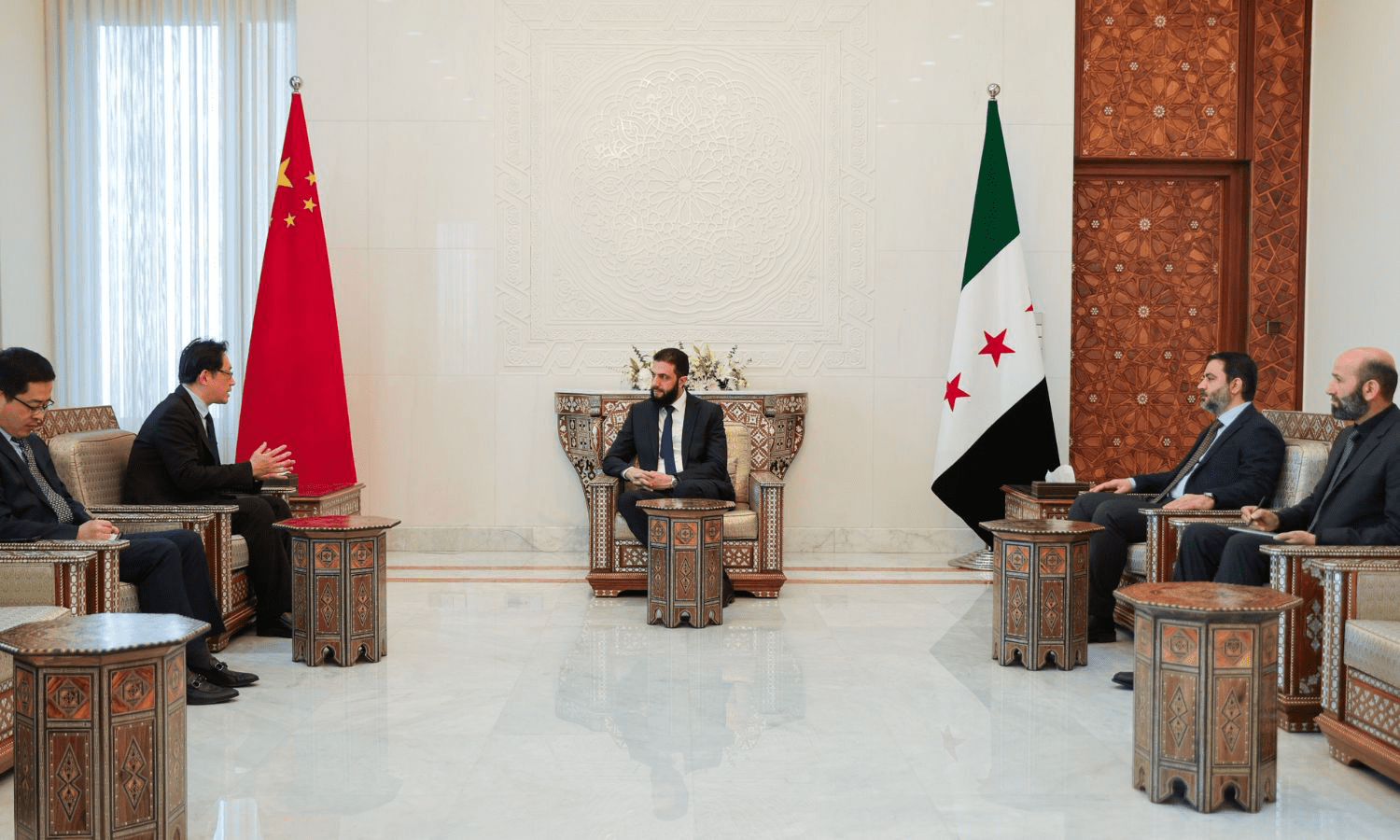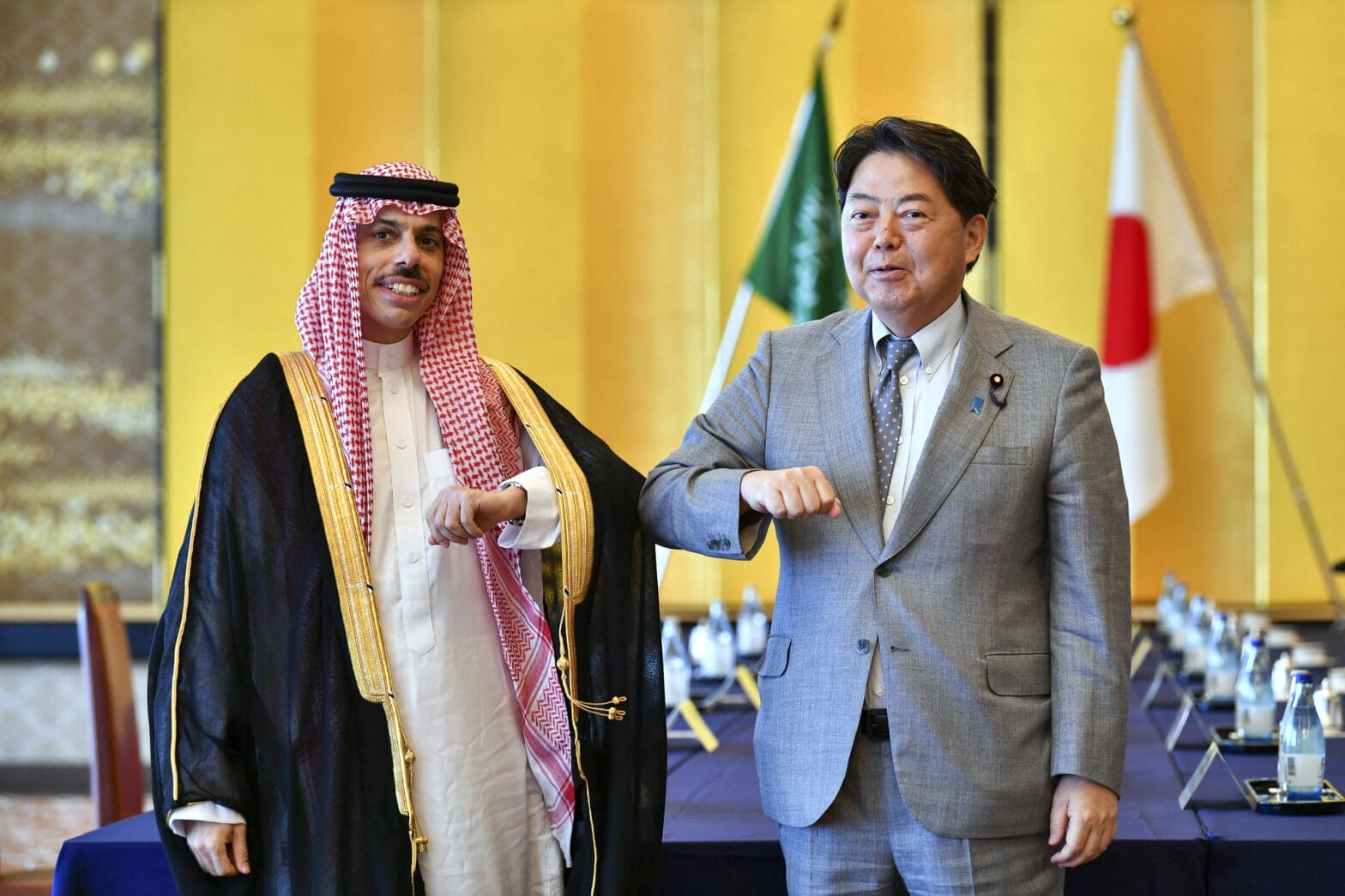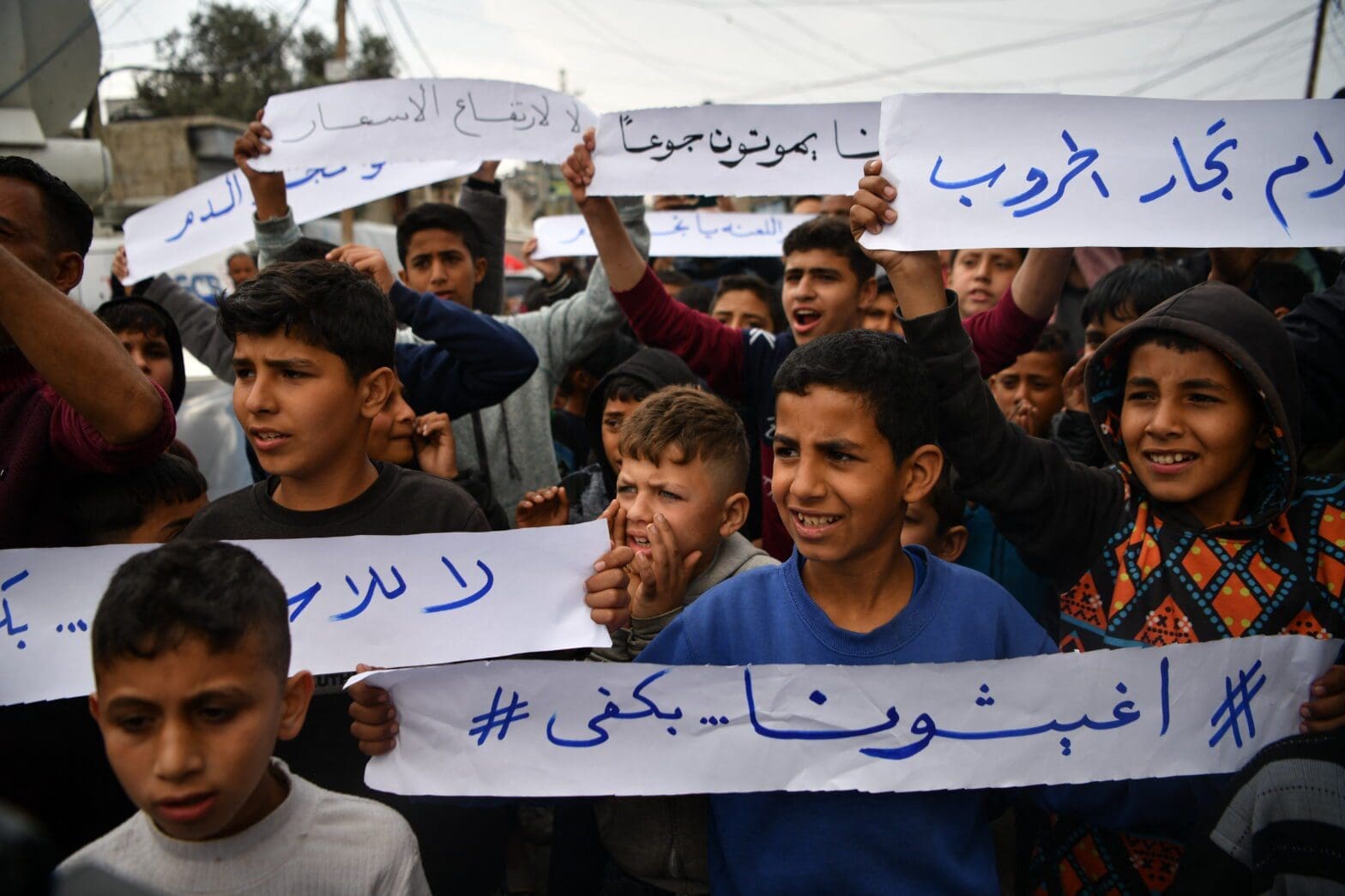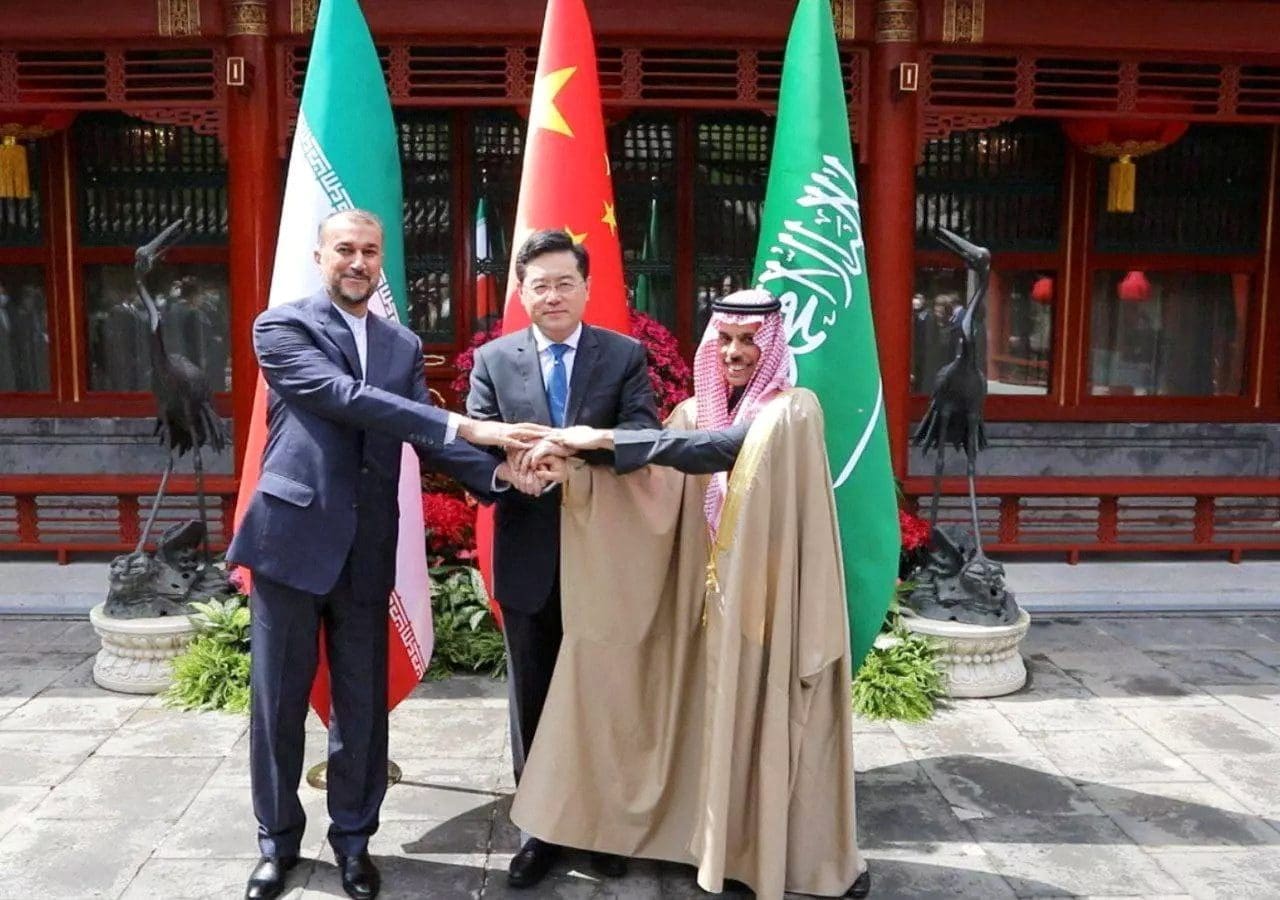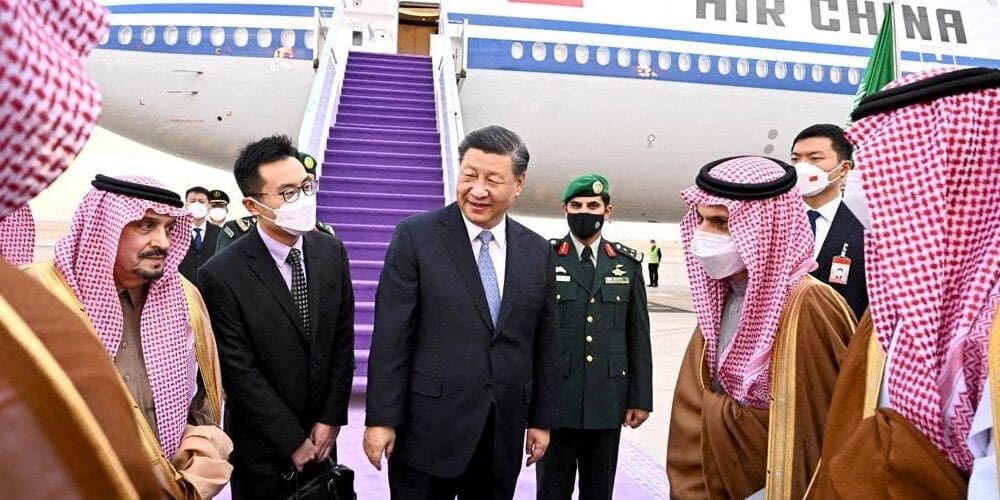For decades, China and Israel have maintained a relatively strong and pragmatic relationship, grounded in extensive trade and technological cooperation. Yet after two years of Israeli devastation in Gaza, along with its broader military operations across the Middle East, it is clear that Israel’s actions have strained its relationship with Beijing. Although their ties have… Continue reading Is Israel Undermining its Ties with China?
Afkar Issue: MENA-Asia Relations
Assessing China’s Shifting Posture on Syria
Chinese officials face an uphill battle in managing relations with Syria’s new interim government following the collapse of Bashar al-Assad’s regime in December 2024. Both seem desirous to find ways to re-engage, but the gap between expectations for the moment remains too wide. Beijing wants the foreign terrorist threat removed from Syria. Syrian authorities, however,… Continue reading Assessing China’s Shifting Posture on Syria
Will China Engage More on Middle East Security?
Since the launch of its Belt and Road Initiative in 2013, China has markedly expanded its trade, industrial investment and other economic activities in the Middle East. As its influence has grown, regional governments like Saudi Arabia, Iran and Türkiye have urged Beijing to play a greater role in the Middle East’s security affairs. These… Continue reading Will China Engage More on Middle East Security?
In Multipolar World, Japan and GCC Should Develop Strategic Ties
In December, the Gulf Cooperation Council and Japan concluded their first round of discussions on a free trade agreement (FTA). History suggests this was the start of a process that may take years, if not decades—reaching an FTA between the GCC and South Korea took 15 years, with many bumps along the way. Nevertheless, this… Continue reading In Multipolar World, Japan and GCC Should Develop Strategic Ties
Thinking Through China’s Middle East Policy Amid War
For many years, China has been expanding its influence to every corner of the globe. And while its strategic priorities remain anchored in the Western Pacific—where it faces great-power rivalry with the United States, myriad territorial disputes, tensions on the Korean Peninsula and the potential for military conflict over the Taiwan Strait—its steadily growing presence… Continue reading Thinking Through China’s Middle East Policy Amid War
Trump 2.0 and the Gulf’s Strategic Future
President-elect Donald Trump’s first term in office reshaped U.S.-Gulf relations. His approach focused on cultivating personal bonds with leaders of Gulf Cooperation Council (GCC), signing massive arms deals, and for the most part not touching human rights issues. Gulf statesmen mostly welcomed this approach, which provided immediate defense assurances without challenging their sovereignty. However, with… Continue reading Trump 2.0 and the Gulf’s Strategic Future
Can China and the U.S. Cooperate in the Middle East?
Cooperation between China and the United States in the Middle East has become a common topic of discussion between academics and experts these days. The two great powers have vested interests in the region that are jeopardized by its chronic instability and the growing threat of regional war. Cooperation between the two should be a… Continue reading Can China and the U.S. Cooperate in the Middle East?
Central Bank Digital Currencies’ Impact on MENA Economies – Council Views
Amid the growing prominence of decentralized finance, central banks are increasing their endeavors to maintain control over financial systems, including through central bank digital currencies (CBDCs). Recent strides by MENA countries indicate the region’s growing interest in CBDCs. Earlier this month, Saudi Arabia’s central bank joined a cross-border trial for CBDCs, Project mBridge, which already… Continue reading Central Bank Digital Currencies’ Impact on MENA Economies – Council Views
Regional Diplomacy Amid the War in Gaza
Over the past four months, Middle Eastern nations have been dismayed by the near-unconditional support from Western governments to Israel as it has bombarded and besieged the Gaza Strip and is now ramping up an assault on Rafah—a sliver of territory where more than a million displaced civilians have gathered. As a result, some have… Continue reading Regional Diplomacy Amid the War in Gaza
Gaza Crisis puts US’ Unipolarity Push in Doubt
Zhai Jun, China’s Special Envoy on the Middle East affairs, is on a trip to the region to push for a cease-fire between Israel and Hamas. In his remarks at the Cairo Summit for Peace on the Palestinian Question on October 21, Zhai called for support for “the Palestinian people in restoring their lawful national… Continue reading Gaza Crisis puts US’ Unipolarity Push in Doubt
Why Japan Should Welcome Saudi Arabia into the GCAP Fighter Jet Alliance
Saudi Arabia has been intensifying its diplomatic efforts to join the Global Combat Air Programme (GCAP), a joint effort by Japan, the United Kingdom and Italy to build a next-generation combat jet. When Japanese Prime Minister Fumio Kishida visited Saudi Arabia in July, Crown Prince Mohammed bin Salman directly asked to join the alliance. But… Continue reading Why Japan Should Welcome Saudi Arabia into the GCAP Fighter Jet Alliance
BRICS Summit: Shaping a New Geopolitical Landscape – Council Views
The Impact of BRICS on the International Order Galip Dalay The 2023 BRICS summit has attracted unprecedented international interest due to the geopolitical context of increasing U.S.-China competition and the Global South’s balancing act regarding the Russia-Ukraine war. As competition between global powers intensifies, Western actors increasingly see this bloc, and others like the Shanghai… Continue reading BRICS Summit: Shaping a New Geopolitical Landscape – Council Views
MENA States’ Assertive Approach in the Era of Emerging Multipolarity
As American dominance of the Middle East and North Africa wanes and other world powers step up their efforts to win friends and influence there, long-time U.S. allies are becoming more assertive towards Washington and recalibrating their other ties to better secure their own interests. The growing U.S.-China strategic rivalry will profoundly impact the region… Continue reading MENA States’ Assertive Approach in the Era of Emerging Multipolarity
The Saudi-Iranian Deal Is Important, but Don’t Expect a Wider Peace
The March 6 announcement that Saudi Arabia and Iran were re-establishing diplomatic ties was an important moment for the Middle East. The Chinese-brokered deal has the potential to end the devastating eight-year conflict in Yemen and address geopolitical tensions elsewhere. From the Saudi perspective, it may end Iranian proxy attacks on Saudi oil facilities, including… Continue reading The Saudi-Iranian Deal Is Important, but Don’t Expect a Wider Peace
MENA Outlook 2023 – Council Views
In various ways, 2022 was arguably a positive year in much of the Middle East and North Africa (MENA) region. The COVID-19 pandemic subsided in many states and the intensity of violence ebbed in several conflict zones. Competition between regional powers receded and gave way to an increase in diplomacy and rapprochement. However, with a… Continue reading MENA Outlook 2023 – Council Views
China’s Xi travels to Saudi Arabia as Asia-GCC relations reach new heights
The arrival of Chinese President Xi Jinping in Saudi Arabia marks an important moment in the historical relationship between the two countries and their respective regions. While the United States has recently been eager to drive a wedge between its partners in the Persian Gulf and its rival to the East, heads of state from… Continue reading China’s Xi travels to Saudi Arabia as Asia-GCC relations reach new heights


